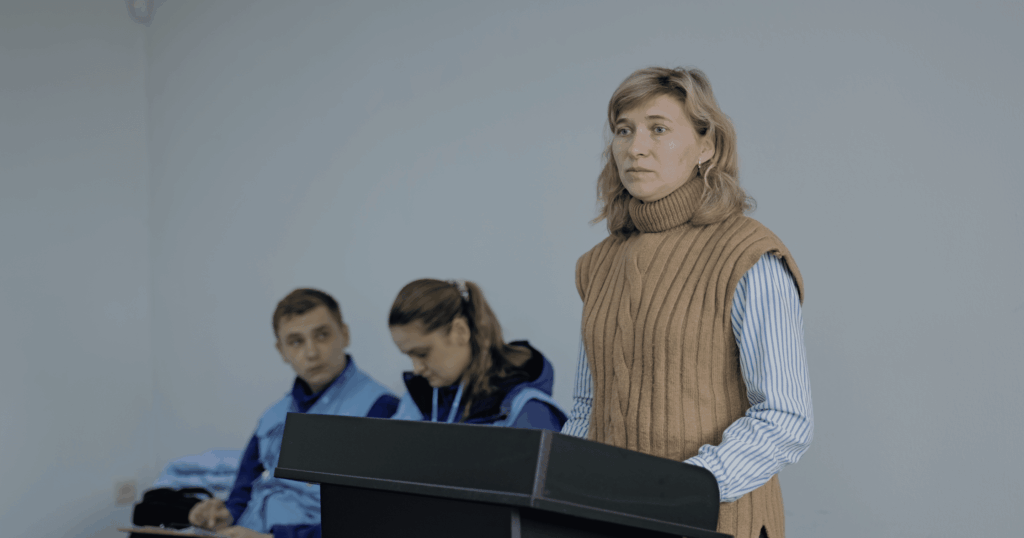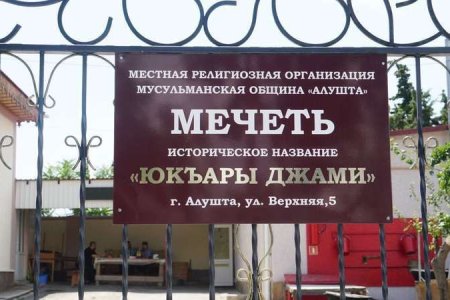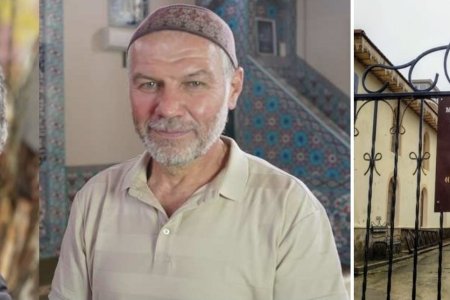
In early March 2022, Victoria Krykunova’s city Svatove in Luhansk oblast was seized by the Russian invading army and she and her family found themselves living under occupation. Three and a half years later, a Ukrainian court has sentenced her to five years’ imprisonment for two months’ work on occupied territory in the occupation ‘Pension fund’. Krykunova had undertaken the work, in the absence of any alternative, in order both to provide for her family’s immediate needs and to earn the money to flee to government-controlled Ukraine which had to be via Russia and the Baltic Republics. The court agreed with the prosecution that Krykunova’s work for those two months had fallen under Ukraine’s law on wartime collaboration, a law which came into force shortly after Svatove was seized by the Russians. This too is of importance since the resulting loss of any contact with government-controlled Ukraine and information vacuum meant that Krykunova had no way of foreseeing what actions would incur criminal liability.
Krykunova’s case has been taken up by the Ukrainian Helskinki Human Rights Union [UHHRU] Strategic Litigations Centre. Her lawyer, Anna Kozmenko calls it an example of the difficulties in application of Article 111-1 of Ukraine’s Criminal Code (collaboration) during a full-scale war.
The defence insist that Krykunova did not commit any crime and point out that international humanitarian law does envisage work by local residents for an occupation regime if this is necessary to ensure normal living conditions for the civilian population. Krykunova’s actions, they stress, were aimed solely at ensuring the survival of her family and at helping other citizens of Svatove who found themselves without any means of existence. The situation in Svatove, following the invasion, was dire and Krykunova and her husband have a a young son. They also needed to care for their parents, all of whom also required regular medication. This was confirmed during one of the court hearings before the Pavlohrad City-District Court in Dnipropetrovsk oblast by a pensioner from Svatove. Had it not been for the pension payments via the occupation ‘Pension fund’, she testified, they might all have died of hunger.
It was under these conditions that Krykunova agreed to work in the occupation Svatkove Pension fund office. As she made clear in court, this was not to get rich or take on any managerial position. She worked there to earn money to survive and to pay the considerable expenses involved in getting to government-controlled Ukraine through the RF and Baltic Republics. The latter was achieved by the middle of June 2022, and the family set off on the long journey. They settled in Irpin, in Kyiv oblast.
The criminal proceedings against Krykunova were initiated on 8 February 2023, with the trial beginning in October 2023. The charges were under part 5 of Article 111-1 of Ukraine’s Criminal Code. The relevant law, introducing this new article, was adopted on 3 March 2022, eight days after Russia’s full-scale invasion of Ukraine, and came into force on 15 March. Article 111-1 specifies types of activities deemed to be collaboration for which a person is criminally liable. The problem in Krykunova’s case is that the prosecution appears to have attributed her a managerial position which she did not, in fact, hold.
She was charged with Article 111-1 § 5 which imposes liability for “voluntarily holding posts involving the carrying out of organizational-administrative or administrative-economic functions of illegal authorities on temporarily occupied territory…” This carries a sentence from five to ten years’ imprisonment, as well as being stripped of the right to hold certain posts and, possibly, confiscation of ones property.
It was asserted that she had been the deputy head of the department with it assumed that this carried some kind of organizational role and functions. UHHRU reports, however, that not one of the witnesses called could provide any specific example of such organizational functions.
The defence also pointed to other elements that need to be considered, such as whether the actions had been motivated by an anti-Ukrainian position; whether there had been any actual damage to state security or, at least, the aim to achieve to achieve such damage; as well as to whether the actions were in keeping with the norms of international humanitarian law.
Krykunova herself insists that her work consisted solely of helping people fill in pension applications and in creating order in the building following the invasion. She told the court that she had committed no crime, adding: “I did not cause any harm to our country. I merely went to work in order to help my family, to help leave. To help people who had remained on occupied territory to simply survive. Simply to exist.”
Kozmenko is adamant that Krykunova’s work was aimed at ensuring basic living conditions for the civilian population under occupation and, as such, was fully in accordance with international humanitarian law.
Despite the fact that no witnesses or actual evidence of any organizational functions, etc. were presented, the court accepted the position of the prosecution, namely that Krykunova’s actions had been voluntary and that she had carried out ‘organizational-administrative functions.’.
After a trial lasting two years, judge Anatoliy Kosiuk found Victoria Krykunova guilty of collaboration under Article 111-1 § 5 and sentenced her to five years’ imprisonment. He also imposed a 14-year ban on holding any government, local or self-government authority posts and ordered confiscation of all her property.
Krykunova was represented by both Anna Kozmenko from the UHHRU Strategic Litigation Centre and by Maksym Zhevaho, who pointed to many flaws in the charges laid. Zhevaho explained to Watchers, for example, that the charges against Krykunova were initiated following information from another person facing charges, a former head of the Pension Fund IT Department. In order to receive the most lenient sentence possible, the latter had begun collaborating with the investigators and had, for example, hacked into the relevant email address and provided them with information.
Zhevaho also commented that the court might have passed a suspended sentence had Krykunova admitted guilt. This may well be the case but is profoundly frustrating in a situation where the defence’s position was, quite rightly, that no crime had been committed.
The defence will be lodging an appeal, and plan to take this to the Supreme Court, if necessary. Ukraine’s Law on Wartime Collaboration has been strongly criticized, both within Ukraine and by international observers, and any such convictions, if not overturned at appeal level, could well end up at the European Court of Human Rights. In comments to Watchers, legal expert Andriy Yakovlev pointed out that the law is unclear and dangerously broad, with this meaning that vital activities of a humanitarian nature can end up unwarrantedly criminalized.
Prior to the court’s verdict, UHHRU had noted that the case “could become an important precedent for understanding the boundaries between collaboration and humanitarian assistance in conditions of occupation which is permissible under international law.”
Russia uses various methods to terrorize the local population and silence people into submission. One method used since 2014 has been to claim that Ukraine will exact ‘reprisals’ after liberating occupied territory. Victoria Krykunova’s actions were prompted solely by the need to ensure her family’s survival and escape from occupied territory, and also helped others survive. Imposing criminal liability and a severe sentence would be a truly chilling and dangerous precedent.



